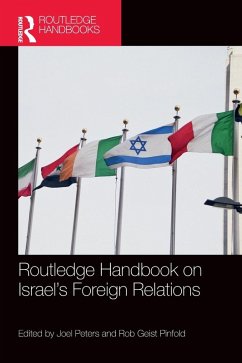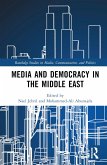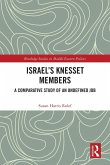This Handbook provides a comprehensive account of contemporary Israeli diplomacy and analyses the changing dynamics of Israel's bilateral relations with other states and the international community over the past seventy-five years.
Research into Israeli foreign policy has been largely sidelined by debates over security, domestic politics and the Israeli-Palestinian conflict. This Handbook addresses the gap in the literature. Comprising 31 essays written by leading scholars of Israel, the Handbook explicates how domestic, societal and economic interests, together with changing Israeli narratives of identity and location, shape and impact Israeli foreign policy. It illustrates how those factors have influenced foreign policy choices and the instruments - economic cooperation, arms sales, military training, and intelligence sharing - that Israel has utilized in order to promote its interests and build relationships with countries and actors throughout the world. Ultimately, the Handbook refutes Kissinger's famous dictum that Israel has no foreign policy, and instead follows the whims of its domestic politics. By contrast, this Handbook highlights the rich, diverse and changing tapestry of Israel's foreign relations.
Written in an accessible style, the book is designed for students taking courses in Israel studies and Middle Eastern studies, as well as a general readership interested in Israeli affairs.
Research into Israeli foreign policy has been largely sidelined by debates over security, domestic politics and the Israeli-Palestinian conflict. This Handbook addresses the gap in the literature. Comprising 31 essays written by leading scholars of Israel, the Handbook explicates how domestic, societal and economic interests, together with changing Israeli narratives of identity and location, shape and impact Israeli foreign policy. It illustrates how those factors have influenced foreign policy choices and the instruments - economic cooperation, arms sales, military training, and intelligence sharing - that Israel has utilized in order to promote its interests and build relationships with countries and actors throughout the world. Ultimately, the Handbook refutes Kissinger's famous dictum that Israel has no foreign policy, and instead follows the whims of its domestic politics. By contrast, this Handbook highlights the rich, diverse and changing tapestry of Israel's foreign relations.
Written in an accessible style, the book is designed for students taking courses in Israel studies and Middle Eastern studies, as well as a general readership interested in Israeli affairs.
"Peters and Pinfold have put together an extremely impressive and comprehensive volume covering Israel's foreign relations from its foundation in 1948 until the present day. This wide-ranging collection contains thirty concise chapters covering Israel's relations with major global powers, whole regions of the world, and individual states in the Middle East. For any student or researcher seeking to understand the development of Israel's foreign relations, this will prove to be an indispensable guide."
Jonathan Rynhold, Department of Political Studies, Bar-Ilan University, Israel
"Israeli foreign policy is a topic that is frequently discussed, but not always understood. This book provides a comprehensive overview of the changing nature and dynamics of Israel's foreign relations from 1948 until the present day. In doing so, it illustrates how Israel sees the world, why it has prioritized relations with certain states, and what means it has used to build international support. Drawing on a diverse range of contributors, Pinfold and Peters' volume is a must-read for students, scholars and practitioners seeking to understand modern Israel and its place in the world."
Dov Waxman, The Rosalinde and Arthur Gilbert Foundation Chair in Israel Studies, Director of the UCLA Y&S Nazarian Center for Israel Studies, United States
Jonathan Rynhold, Department of Political Studies, Bar-Ilan University, Israel
"Israeli foreign policy is a topic that is frequently discussed, but not always understood. This book provides a comprehensive overview of the changing nature and dynamics of Israel's foreign relations from 1948 until the present day. In doing so, it illustrates how Israel sees the world, why it has prioritized relations with certain states, and what means it has used to build international support. Drawing on a diverse range of contributors, Pinfold and Peters' volume is a must-read for students, scholars and practitioners seeking to understand modern Israel and its place in the world."
Dov Waxman, The Rosalinde and Arthur Gilbert Foundation Chair in Israel Studies, Director of the UCLA Y&S Nazarian Center for Israel Studies, United States








